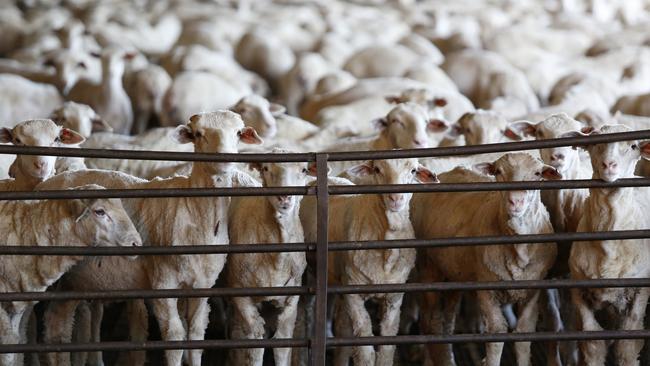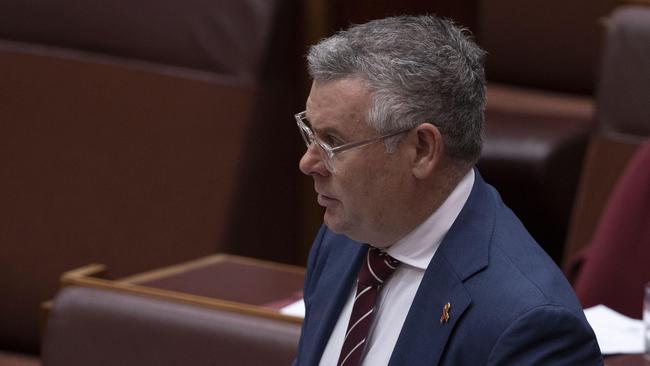Middle East lamb deal offers sheep freight lifeline
Major importers of Australian sheep meat have agreed to change a rule that will have significant impacts on sheep farmers.

Trading partners in the Middle East have agreed to extend the accepted shelf life of meat imported from Australia in what the Albanese government says will create greater market access for Australian farmers.
In a move intended to ease concerns from sheep producers in Western Australia who will lose their live export market, the government has lobbied the Gulf Co-operation Council, which comprises some of the country’s biggest importers of sheep meat, to increase the maximum shelf life they would accept on imported vacuum-packed chilled meat products.
Beef and buffalo meat now have a shelf life of 120 days, while sheep and goat meat now have a shelf life of 90 days. Previously the accepted shelf life for beef and lamb was 70 days. It means exporters now have the option of sending meat by sea, rather than air, reducing transport costs by about $3 a kilogram.
“We understand that our livestock industry has been doing it tough lately with rapidly decreasing livestock prices caused by an oversupply in the market,” Agriculture Minister Murray Watt said.
“That’s why we’ve been working extra hard to secure better market access conditions for our export producers.
“Not only does this improved market access mean that export by sea is now possible — saving approximately $3 a kilogram of product — but our product can also keep their premium price longer, which means higher profit.”
Some Gulf countries had already extended the shelf life, but the new regulation brings all Gulf Cooperation Countries into line.
It also permits Australian exporters some leeway with packaging. According to the Department of Agriculture Fisheries and Forestry, chilled meat “previously needed to be packed under a modified atmosphere, an expensive practice that is not commonly used by Australian industry”.
The breakthrough comes as the government’s advisory panel is due to report back with suggestions for how to implement the promised phase-out of live sheep exports.
At a time when Australian farmers are struggling to offload their sheep, new figures revealed in Meat and Livestock Australia’s state of the industry report showed the country was the biggest sheep meat exporter in the world last year.
Australians were also among the biggest consumers of lamb in the world, eating about 6.8kg per person, compared to a global average of 1.8kg, according to Meat and Livestock Australia’s latest state of the industry report.

Despite the demand, farmers on both sides of the continent are struggling to sell their stock.
Farmers in Western Australia have partly attributed the blame to the Albanese government’s pledge to end the live sheep export trade – a claim denied by the Premier Roger Cook and Senator Watt.
Others have said the price drop is simply a function of economics, with the massive growth in the size of the national sheep flock over the past three La Nina years creating too much supply.
MLA managing director Jason Strong said the price drop could be attributed to labour shortages in meat processors causing bottlenecks and oversupply caused by farmers selling their stock early in anticipation of drought.
“We’ve got a market acting like we’re in the middle of a roaring drought, but we’re not, and the physical conditions don’t actually support that,” Mr Strong said.
“We’ve seen a significant increase in domestic consumption and exports, but just not as much as the increased production.”








To join the conversation, please log in. Don't have an account? Register
Join the conversation, you are commenting as Logout